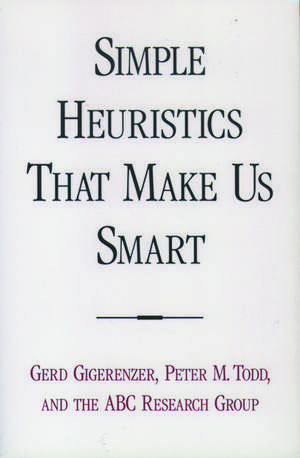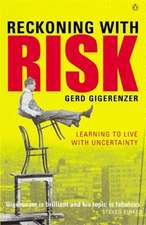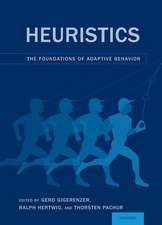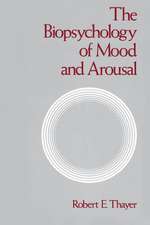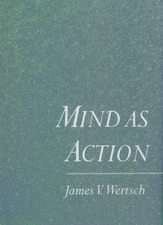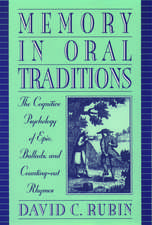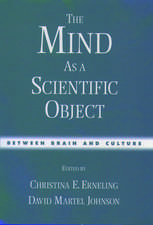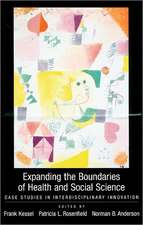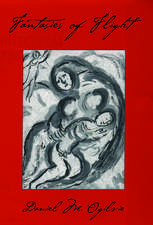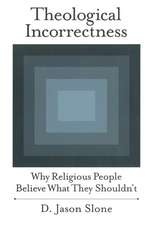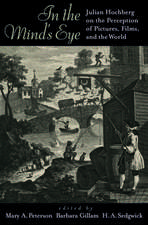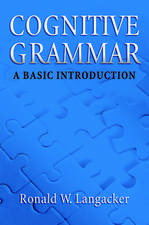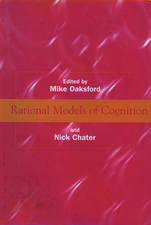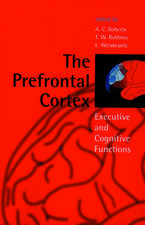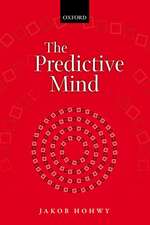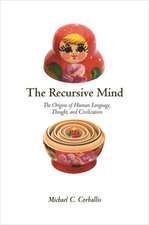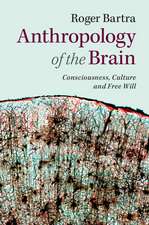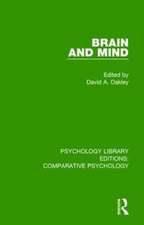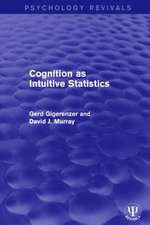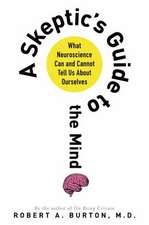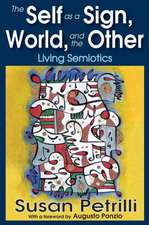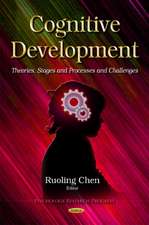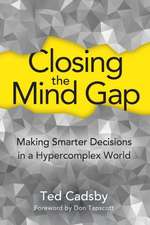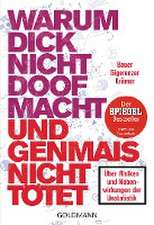Simple Heuristics That Make Us Smart: Evolution and Cognition
Autor Gerd Gigerenzer, Peter M. Todd, ABC Research Groupen Limba Engleză Paperback – 26 oct 2000
Preț: 330.88 lei
Preț vechi: 418.74 lei
-21% Nou
Puncte Express: 496
Preț estimativ în valută:
63.31€ • 66.10$ • 52.40£
63.31€ • 66.10$ • 52.40£
Carte tipărită la comandă
Livrare economică 25-31 martie
Preluare comenzi: 021 569.72.76
Specificații
ISBN-13: 9780195143812
ISBN-10: 0195143817
Pagini: 432
Ilustrații: numerous figures
Dimensiuni: 237 x 158 x 26 mm
Greutate: 0.63 kg
Editura: Oxford University Press
Colecția OUP USA
Seria Evolution and Cognition
Locul publicării:New York, United States
ISBN-10: 0195143817
Pagini: 432
Ilustrații: numerous figures
Dimensiuni: 237 x 158 x 26 mm
Greutate: 0.63 kg
Editura: Oxford University Press
Colecția OUP USA
Seria Evolution and Cognition
Locul publicării:New York, United States
Recenzii
"How do people cope in the real, complex world of confusing and overwhelming information and rapidly approaching deadlines? This important book starts a new quest for answers. Here, Gigerenzer, Todd, and their lively research group show that simple heuristics are powerful tools that do surprisingly well. The field of decision making will never be the same again."--Donald A. Norman, author of Things That Make Us Smart and The Invisible Computer
"Gigerenzer & Todd's volume represents a major advance in our understanding of human reasoning, with many genuinely new ideas on how people think and an impressive body of data to back them up. Simple Heuristics is indispensable for cognitive psychologists, economists, and anyone else interested in reason and rationality."--Steven Pinker, author of How the Mind Works and Words and Rules
"In the past few years, the theory of rational (sensible) human behavior has broken loose from the illusory and empirically unsupported notion that deciding rationally means maximizing expected utility. Research has learned to take seriously and study empirically how real human beings ... actually address the vast complexities of the world they inhabit. Simple Heuristics ... offers a fascinating introduction to this revolution in cognitive science, striking a great blow for sanity in the approach to human rationality."--Herbert A. Simon, Carnegie Mellon University, and Nobel Laureate in Economics
"This book is a major contribution to the theory of bounded rationality. It illustrates that the surprising efficiency of fast and simple procedures is due to their fit with the structure of the environment in which they are used. The emphasis on this ecological rationality is an advance in a promising and already fruitful new direction of research."--Reinhard Selten, Professor of Economics at the University of Bonn, and Nobel Laureate in Economics
"In recent years, and particularly in the culture wars, many people have written about rationality. These authors now provide a summary of this recent history, organized on the basis of different types of decision making. In each case, the authors summarize the literature so as to provide an implicit history. But the book is more fundamentally aimed at making rationality workable by showing 'the way that real people make the majority of their inferences and decisions.'"--Journal of the History of the Behavioral Sciences
"Gigerenzer & Todd's volume represents a major advance in our understanding of human reasoning, with many genuinely new ideas on how people think and an impressive body of data to back them up. Simple Heuristics is indispensable for cognitive psychologists, economists, and anyone else interested in reason and rationality."--Steven Pinker, author of How the Mind Works and Words and Rules
"In the past few years, the theory of rational (sensible) human behavior has broken loose from the illusory and empirically unsupported notion that deciding rationally means maximizing expected utility. Research has learned to take seriously and study empirically how real human beings ... actually address the vast complexities of the world they inhabit. Simple Heuristics ... offers a fascinating introduction to this revolution in cognitive science, striking a great blow for sanity in the approach to human rationality."--Herbert A. Simon, Carnegie Mellon University, and Nobel Laureate in Economics
"This book is a major contribution to the theory of bounded rationality. It illustrates that the surprising efficiency of fast and simple procedures is due to their fit with the structure of the environment in which they are used. The emphasis on this ecological rationality is an advance in a promising and already fruitful new direction of research."--Reinhard Selten, Professor of Economics at the University of Bonn, and Nobel Laureate in Economics
"In recent years, and particularly in the culture wars, many people have written about rationality. These authors now provide a summary of this recent history, organized on the basis of different types of decision making. In each case, the authors summarize the literature so as to provide an implicit history. But the book is more fundamentally aimed at making rationality workable by showing 'the way that real people make the majority of their inferences and decisions.'"--Journal of the History of the Behavioral Sciences
